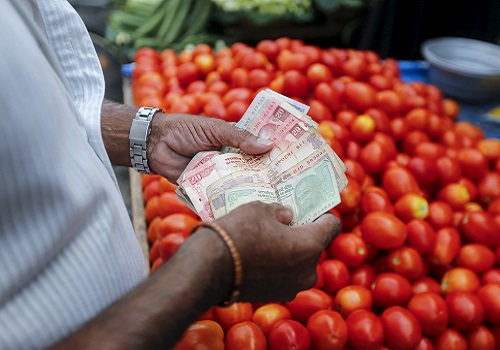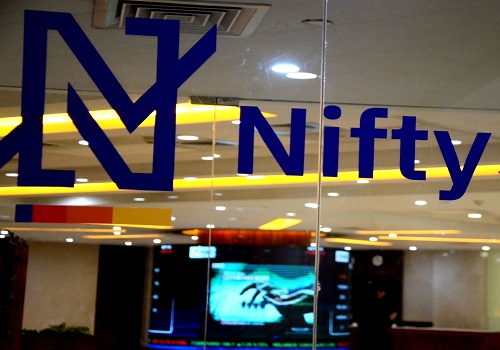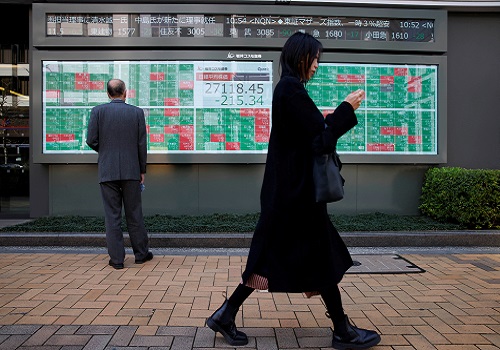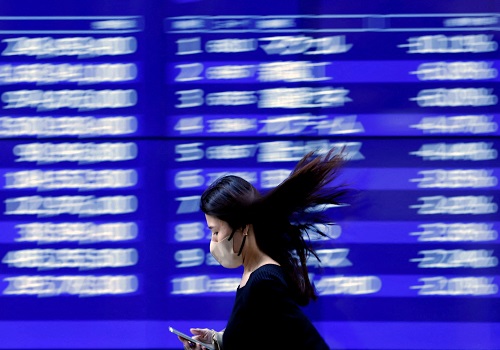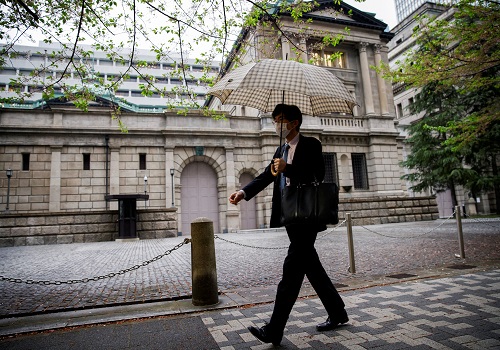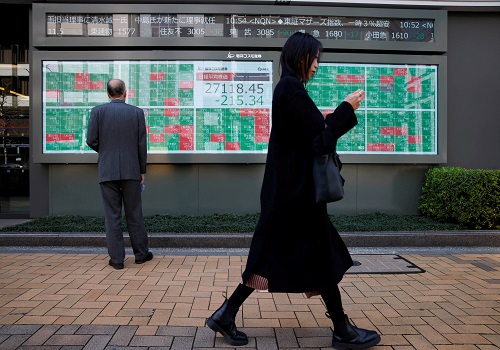Stocks wobble as rate risks cloud 2023 outlook
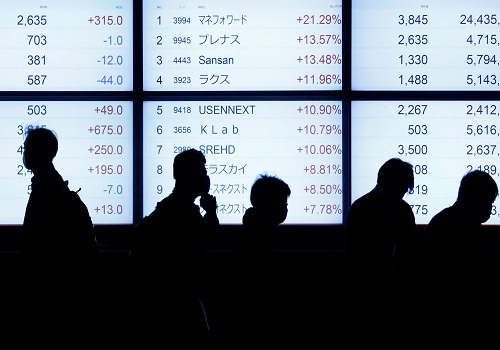
Follow us Now on Telegram ! Get daily 10 - 12 important updates on Business, Finance and Investment. Join our Telegram Channel
World stocks inched higher on Monday but stayed near 6-week lows as investors started the year's last full trading week still mindful of interest rate hike risks to the economy in 2023.
The U.S. Federal Reserve and European Central Bank hiked rates and promised more last week, and speculation is even building that the Bank of Japan, which meets on Monday and Tuesday, is eyeing a shift in its ultra-dovish stance.
The MSCI's benchmark for global stocks hovered around parity. By 0902 GMT, the index rose 0.1% after a heavy week for interest rate increases on Friday sent it to its lowest point since Nov. 10.
Europe's STOXX 600 sought to recover, up 0.5% in early trading, while short-dated euro zone yields were not far off their highest levels in more than a decade as investors remained concerned about a hawkish ECB.
"Markets would have done without an ultra-hawkish (ECB President Christine) Lagarde going into year-end. It wreaked havoc even on rate markets," said Carlo Franchini, head of institutional clients at Banca Ifigest in Milan.
"Except for the BOJ and perhaps the Bank of England, there's little confidence in the other central banks. It's unrealistic to keep raising rates at this pace next year," he added.
ECB's Vice-President Luis de Guindos said on Monday the ECB will hike rates further, adding that the institution was committed to bringing inflation down to its 2% mid-term goal.
Meanwhile, European Union energy ministers meet in Brussels in an effort to agree a cap on gas prices that have inflated energy bills and stoked record-high inflation this year.
Japan's Nikkei fell 1.05% to a six-week low and the yen rose 0.5% to 135.9 per dollar. MSCI's broadest index of Asia-Pacific shares outside Japan fell 0.15%.
Japan will consider revising a 2% inflation target agreed between the government and central bank next year, sources said, a move that may heighten the chance of a tweak to the BOJ's ultra-loose monetary policy.
"Where there's smoke, eventually there is fire," said National Australia Bank strategist Rodrigo Catril in Sydney.
"This sort of news we're getting plays to this view that the government will open the door for the BOJ to have a more flexible approach," he said, "and that some of this uber-undervaluation of the yen can be reversed."
The yen has been the worst-performing G10 currency this year, with a 15% loss against the dollar, driven mainly by the gap between rising U.S. rates and anchored Japanese rates.
Five-year Japanese government bond yields hit a nearly eight-year high. [JP/]
In China, stocks saw their biggest one-day drop in seven weeks, as concerns over surging COVID-19 cases disrupting the economy outweighed hopes from the government's policy support.
"Interest rates are not the only evolving threat to global activity levels," wrote Rabobank strategist Jane Foley.
U.S. rates were steady last week, despite the Fed projecting further hikes ahead, as traders fret that interest rates are already high enough to start hurting economic growth. Ten-year Treasury yields stood at 3.5277%.
The S&P 500 dropped 2% last week. It is down 20% for the year and has failed in several attempts at sustainably trading above its 200-day moving average.
S&P 500 futures rose 0.4%.
The euro rose 0.6% to $1.064, below last week's six-month high of $1.0737, and the pound was up 0.7% at $1.23, also below last week's peak. The dollar fell 0.6% [FRX/]
Hopes for improvements in demand lifted oil prices on Monday, with Brent crude futures up 0.4% at $79.36 a barrel, but it has barely gained for the year. [O/R]
Gold inched 0.3% higher steady at $1,769 an ounce. Bitcoin remained trading below $17,000. [GOL/]












 320-x-100_uti_gold.jpg" alt="Advertisement">
320-x-100_uti_gold.jpg" alt="Advertisement">

